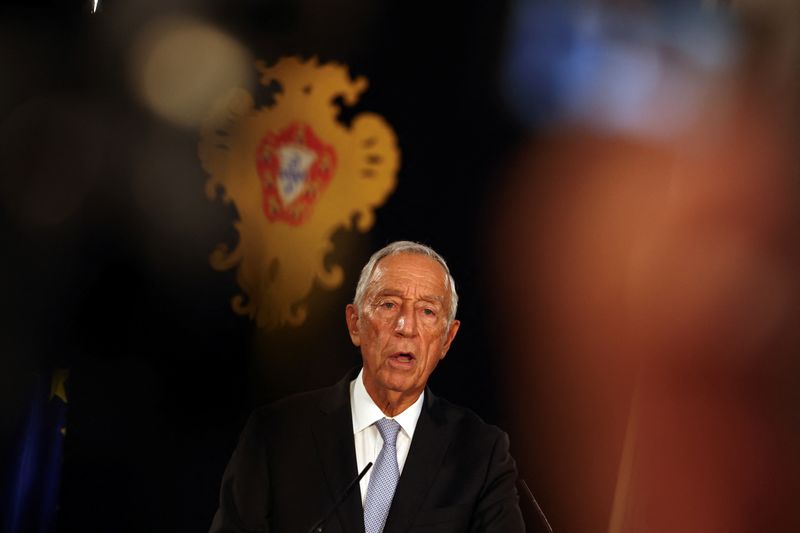sergio gonçalves
LISBON (Reuters) – Portugal's government said on Saturday it would refuse to start a process to pay reparations for transatlantic slavery and atrocities committed during colonial times, contrary to previous comments by the president. Marcelo Rebelo de Souza.
Between the 15th and 19th centuries, six million Africans were abducted, forcibly transported across the Atlantic on Portuguese ships, and sold into slavery, mostly in Brazil.
Prime Minister Rebelo de Sousa said on Saturday that Portugal could use several methods to pay reparations, including canceling the former colony's debts or offering loans.
In a statement sent to the Portuguese news agency Lusa, the government said it hoped to “deepen mutual relations, respect historical truth, and pursue ever closer and closer cooperation, based on the reconciliation of our brotherly peoples.” Stated.
However, he pointed out that this policy has been followed by successive governments, adding that there is “no concrete action process or program” towards compensation payments.
The report called the relationship with the former colony “truly excellent,” citing cooperation in areas such as education, language, culture, and health, in addition to finance, budget, and economic cooperation.
On Tuesday, the president hinted at the need for reparations, provoking strong criticism from right-wing parties including the CDS People's Party, a junior partner in the Democratic Union government coalition, and the far-right Chega.
“We cannot hide this under the carpet or in a drawer. We have an obligation to pilot and lead this (reparations) process,” the president told reporters on Saturday. Told.
The Portuguese colonial period lasted more than five centuries, with Angola, Mozambique, Brazil, Cape Verde, Sao Tome and Principe, East Timor, and parts of Asia under Portuguese rule.
The decolonization of African countries and the end of African empires occurred just months after Portugal's Carnation Revolution on April 25, 1974 overthrew Europe's longest-running fascist dictatorship and ushered in democracy.
(Reporting by Sergio Goncalves; Editing by David Evans and David Gregorio)


